Are you considering applying for campus housing at your university but unsure how to start? Crafting a well-structured letter can make all the difference in your request, showcasing your intentions clearly and effectively. In this article, we'll explore the essential elements you should include in your housing request letter, ensuring you present your case in a compelling manner. So grab a seat and let's dive into the details that will help you secure your spot on campus!
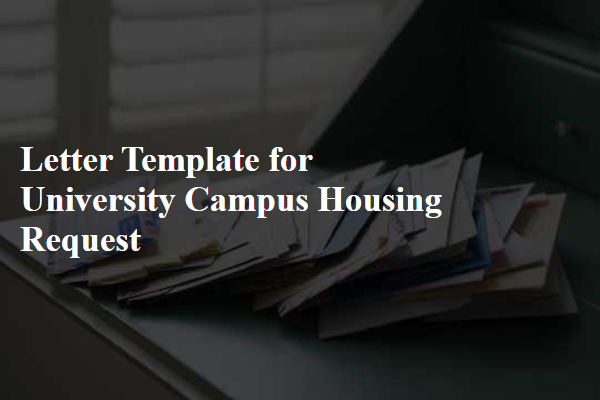
Personal Information
Students seeking university campus housing must provide essential personal information to facilitate the application process. This includes full name, typically formatted as Last Name, First Name (e.g., Smith, John), date of birth, which is crucial for age verification and may affect housing eligibility (e.g., 12/01/2000), student identification number assigned by the university, commonly referenced as a UID or ID number, contact details consisting of a current phone number and email address for communication regarding housing status, and the academic year for which housing is requested, such as Fall 2024 or Spring 2025. Additionally, students must indicate their program of study (e.g., Bachelor of Science in Biology), which may influence housing assignments based on proximity to academic buildings. Housing preferences, including room type (single, double, or suite), should also be noted to match students' living requirements.
Reason for Housing Request
University campus housing requests often stem from specific needs related to academic involvement, personal circumstances, or health considerations. For instance, a student may require housing due to participation in a year-long research project at the university's science lab, which necessitates proximity to resources like libraries and faculty offices. Another reason could be a medical condition requiring easy access to healthcare services provided on campus, such as counseling centers or health clinics. Additionally, first-year students may request housing to ensure a smooth transition into university life, fostering social connections and support from peers residing in dormitory-style accommodations. Each individual's request plays a significant role in ensuring their academic success and overall well-being within the campus environment.
Housing Preferences
University campus housing requests often involve specific preferences regarding room type, location, and amenities. Students frequently seek shared apartments with fellow classmates for social interaction, choosing locations near academic buildings like the Library or Science Hall for convenience. Room types may include single rooms for privacy or doubles for affordability. Amenities such as laundry facilities, kitchen access, and study lounges significantly enhance the living experience. Proximity to campus resources, including dining halls and recreational centers, can also influence housing choices. Each aspect plays a crucial role in improving student life and academic success on campus.
Financial Considerations
University campus housing costs can significantly impact students' financial situations, particularly when considering expenses like room and board, which can exceed $10,000 per academic year at institutions like the University of California. Budget constraints may force students to seek more affordable options. Financial aid packages, which may include grants and loans that average around $15,000 annually, often do not cover all housing expenses. Additionally, unexpected costs such as utilities and maintenance fees can arise, further straining limited resources. Students facing economic hardships may struggle with living arrangements that affect their academic performance and overall well-being at university facilities specifically designed to foster student success.
Contact Information
University campus housing requests require clear contact information to facilitate effective communication. Essential details include the full name of the individual seeking accommodation, such as John Doe (student ID 123456), along with an active university email address (jdoe@university.edu) for official correspondence. Additionally, including a phone number, for example, (123) 456-7890, ensures quick access for follow-ups. The mailing address, such as 100 University Ave, Apartment 101, Campus City, State 12345, provides a physical location for any necessary documentation or correspondence. Lastly, specifying a preferred contact method supports streamlined communication, enhancing the overall housing request process.

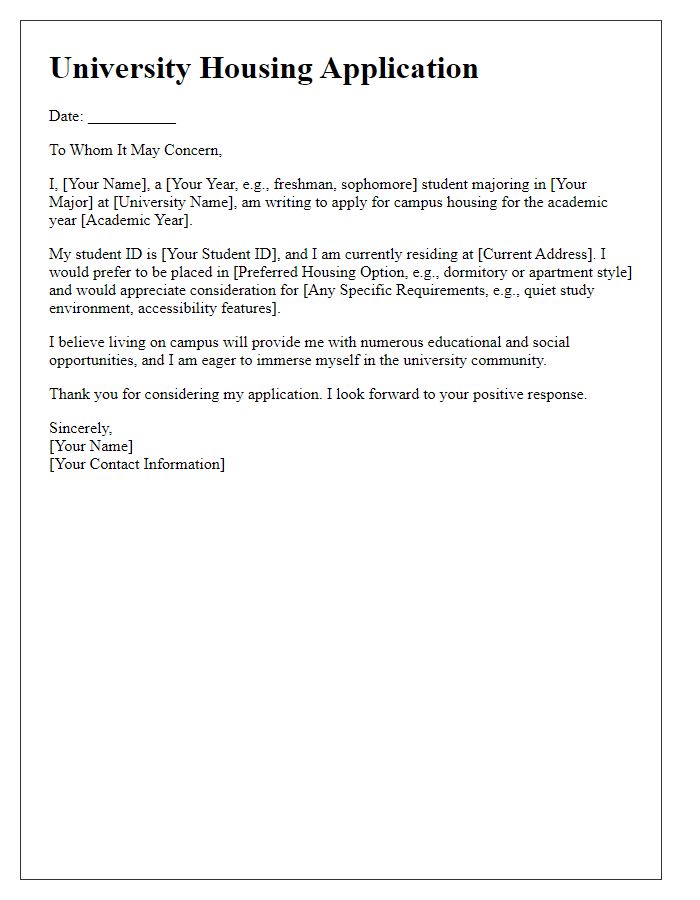
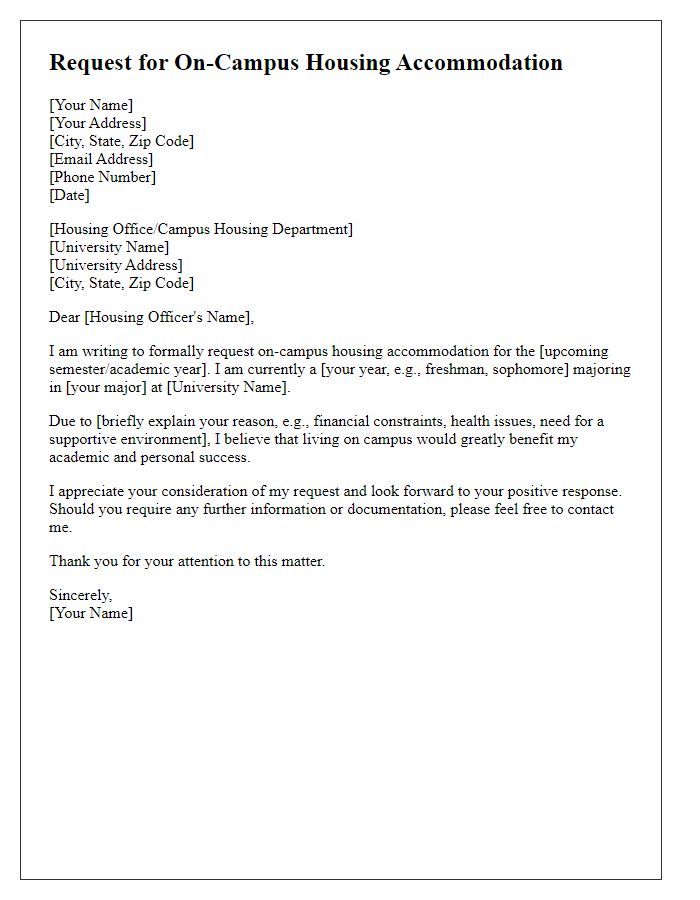
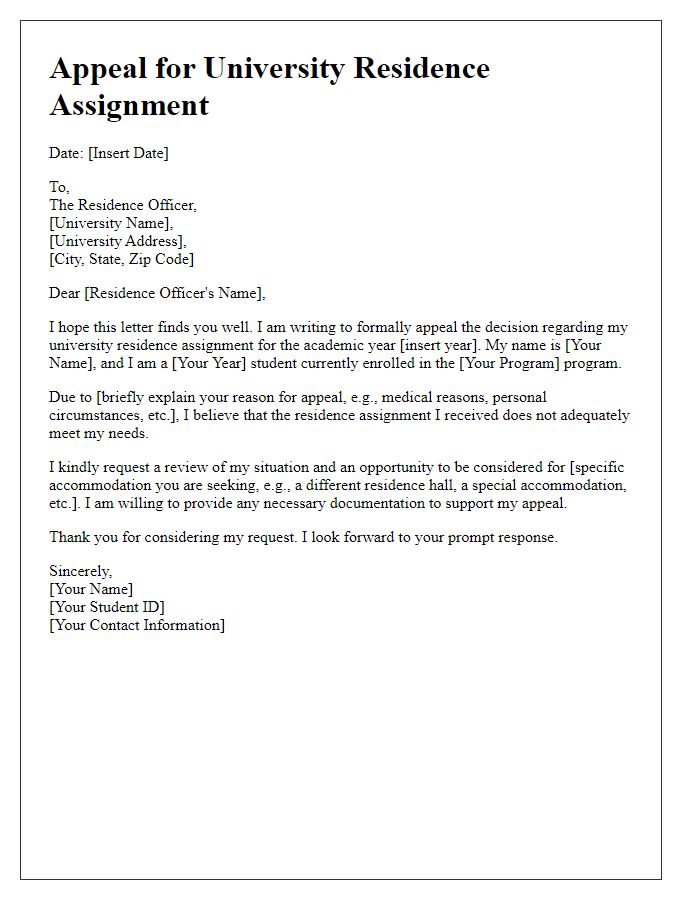
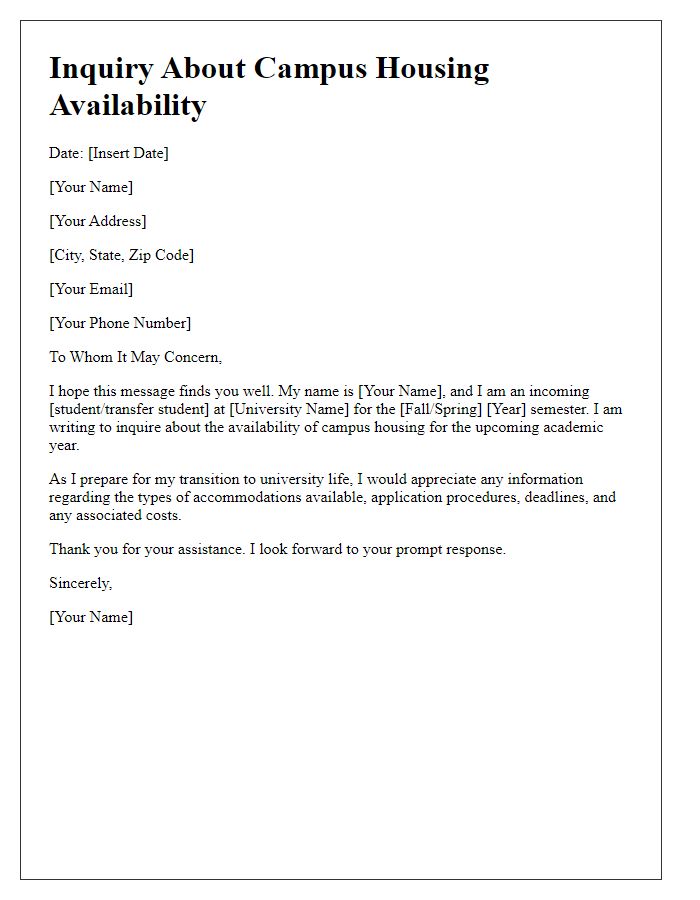
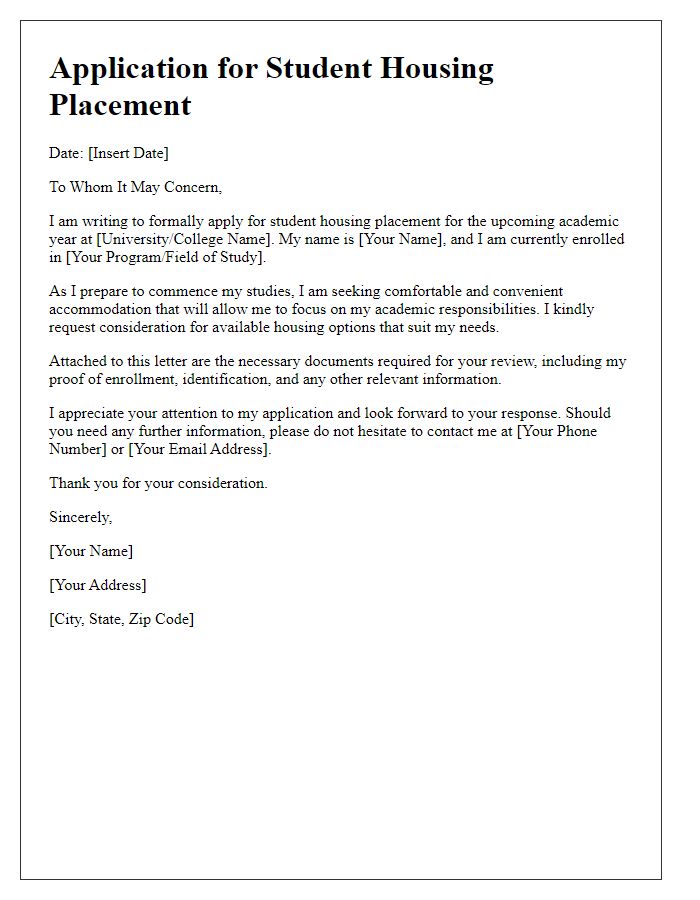
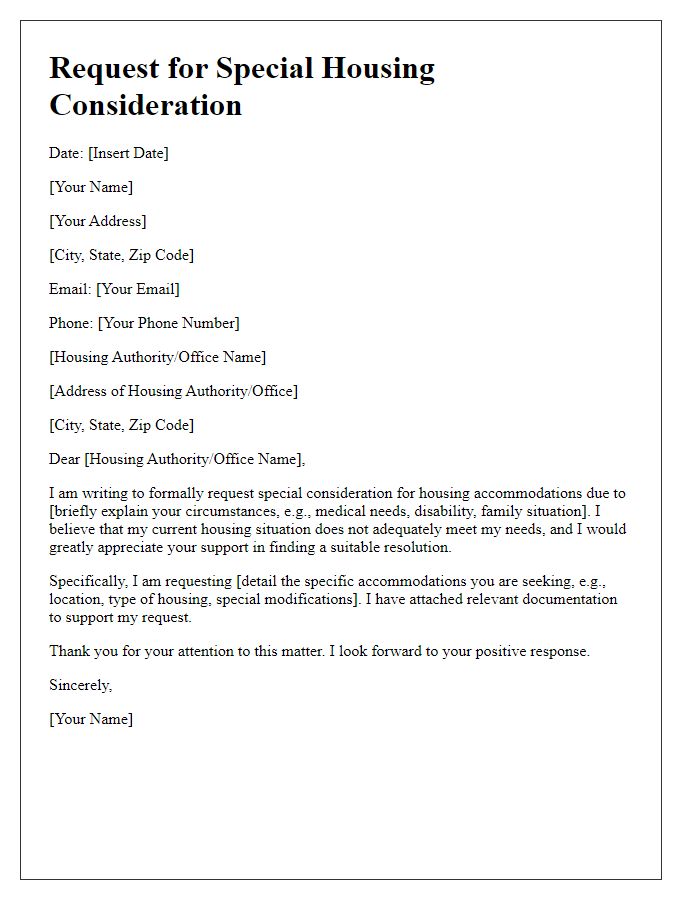
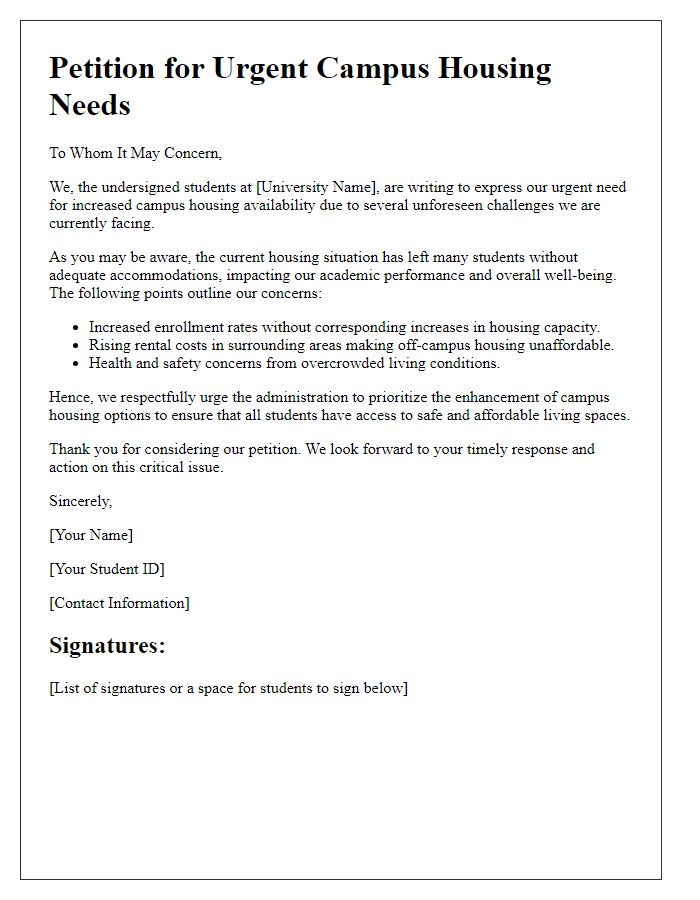
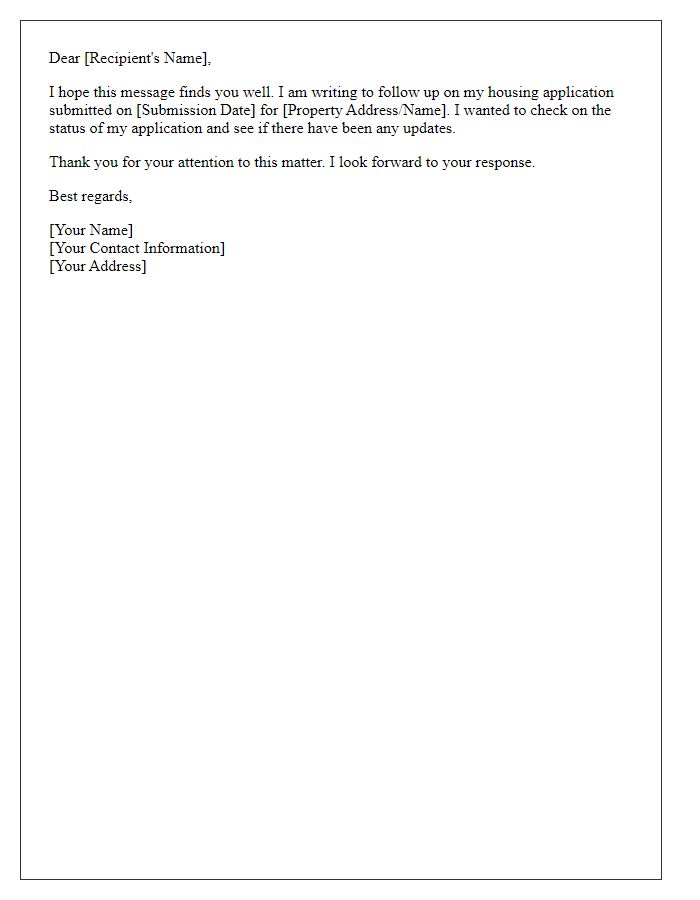
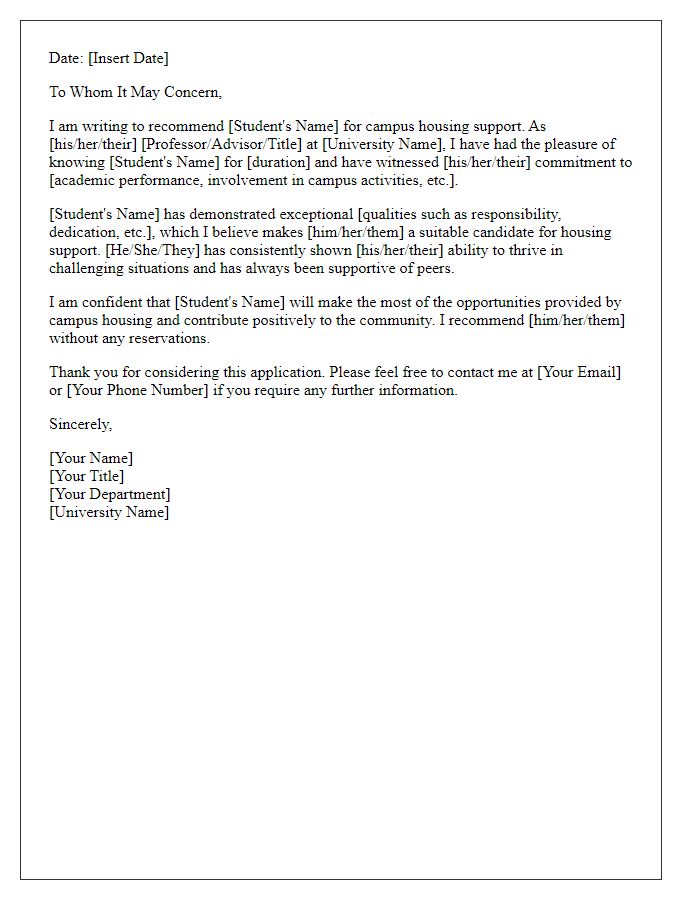
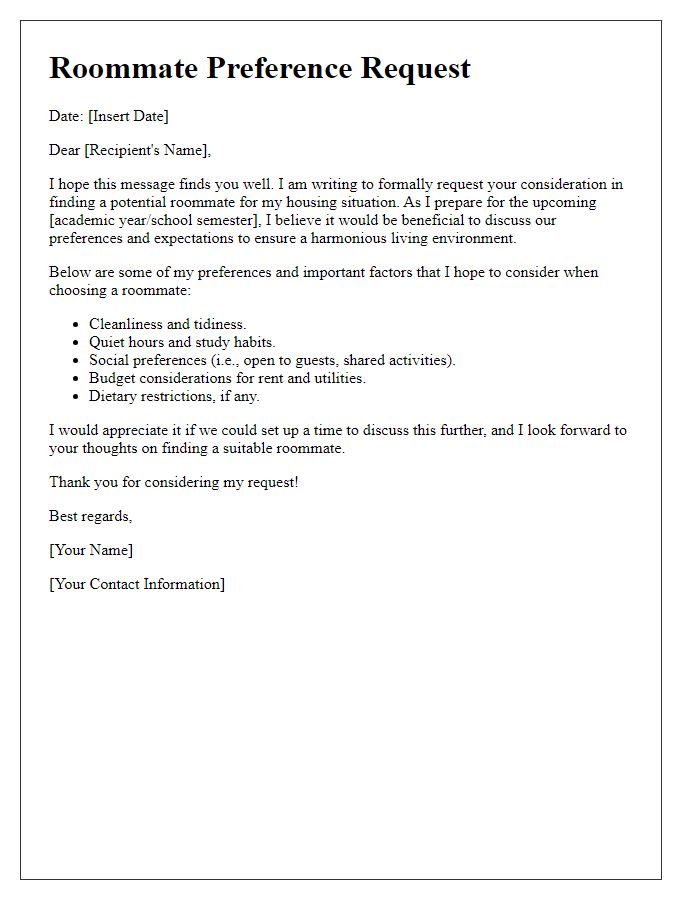


Comments